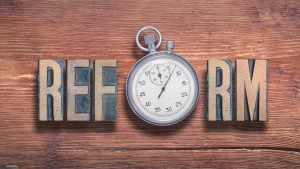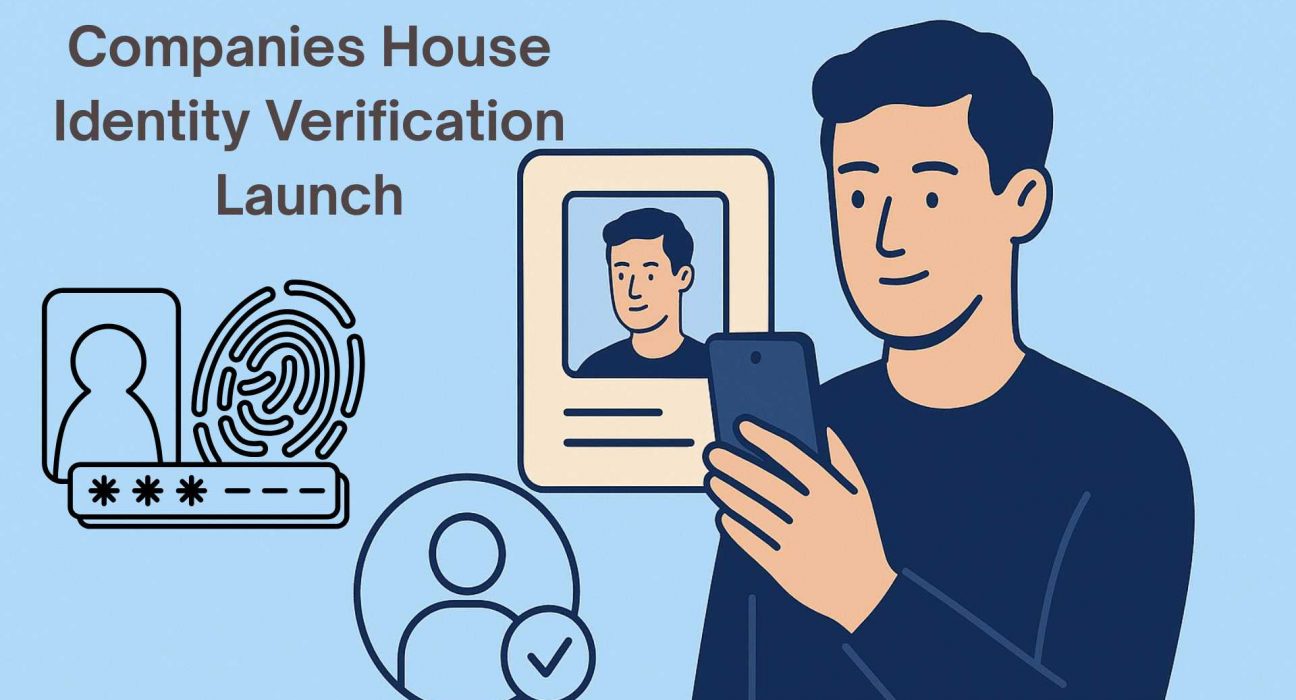As of 8 April 2025, the UK business landscape has changed dramatically. The Companies House identity verification launch is not just another regulatory update. it marks a foundational shift in how corporate ownership, directorship, and transparency are handled across the United Kingdom.
Under the Economic Crime and Corporate Transparency Act 2023, identity verification is now live on a voluntary basis, and it will become legally mandatory in autumn 2025. With over 6 million individuals expected to comply, this is the most significant reform to UK company law in decades.
Whether you’re a business owner, company director, accountant, or corporate agent, understanding these changes is not optional — it’s essential.
What Is the Companies House Identity Verification Launch All About?

The identity verification initiative is a new system introduced by Companies House that requires individuals to prove they are who they say they are before taking on key roles within UK-registered companies.
Components of the Launch:
-
Launched: 8 April 2025 (voluntary phase)
-
Becomes mandatory: Autumn 2025
-
Applies to: Directors, People with Significant Control (PSCs), filing agents, and LLP members
-
Verification methods: GOV.UK One Login or via Authorised Corporate Service Providers (ACSPs)
On launch day, individuals were able to verify their identity using the GOV.UK One Login or through ACSPs such as AML-supervised accountants, solicitors, or formation agents.
This reform aims to safeguard the Companies House register, long criticised for allowing fraudulent entities to operate unchecked.
Louise Smyth CBE, CEO of Companies House, said:
“Identity verification will play a key role in improving the quality and reliability of our data and tackling misuse of the companies register.”
Why Has Companies House Introduced Identity Verification for Directors and Owners?
In recent years, the UK has faced mounting criticism for becoming a breeding ground for shell companies, many of which were registered using fake or stolen identities. These entities have been involved in a range of criminal activities, including:
-
Money laundering
-
Defrauding public institutions and financial bodies
-
Deceiving consumers, investors, and regulators
To tackle this issue, the UK government introduced the Economic Crime and Corporate Transparency Act, empowering Companies House with a new set of tools to help clean up the company register.
The primary aim is to create a more transparent and secure corporate environment, where individuals behind companies are identifiable and accountable.
Justin Madders MP, Minister for Employment Rights, Competition and Markets, said:
“In a time where economic crime has become too common, it is imperative that we bring in measures to prevent identities being stolen online.”
Who Needs to Complete Companies House Identity Verification?
This new requirement impacts a wide array of individuals and entities.
Identity verification is required for:
-
New directors being appointed
-
Existing directors already on record (must verify by autumn 2025)
-
People with Significant Control (PSCs)
-
LLP members (Limited Liability Partnerships)
-
Anyone filing documents on behalf of a company
-
Authorised agents (ACSPs)
The Law Society of England and Wales Company Law Committee commented:
“We are pleased that Companies House is introducing the procedures on a staggered basis, which will give companies and LLPs the option to ensure their directors and PSCs complete the necessary checks ahead of time.”
How Does the Companies House Digital Identity Verification Process Work – Step-by-Step (2025 Guide)?

Verifying Your Identity via GOV.UK One Login
This is the simplest and fastest method for individuals.
Step-by-Step
-
Create or log in to your GOV.UK One Login
-
Upload an identity document (passport, residence permit, driving licence)
-
Perform a facial recognition scan
-
Submit and await confirmation
Feryal Clark MP, Minister for AI and Digital Government, said:
“Identity verification through our GOV.UK One Login service will make it easier to do business with confidence – protecting entrepreneurs, consumers, and the UK economy.”
Verifying Through an Authorised Corporate Service Provider (ACSP)
For those acting on behalf of clients (e.g., accountants, formation agents), this route is required.
Step-by-Step
-
Register as an ACSP (AML-supervised and approved)
-
Collect personal data and identity documents
-
Complete all 6 verification steps (including forgery checks and documentation)
-
Submit via the ACSP dashboard
Glenn Collins, Head of Technical and Strategic Engagement at ACCA, noted:
“We welcome the moves to strengthen the integrity of the register, which includes identity verification. Our members are helping companies of all sizes adapt to these new regulations.”
How Long Does Identity Verification Take?
| Method | Average Duration | Cost |
|---|---|---|
| GOV.UK One Login | 5–15 minutes | Free |
| Through an ACSP | 1–3 days | Varies by provider |
Shevaun Haviland, Director General of the British Chambers of Commerce, said:
“The introduction of these new security measures will be welcomed by the thousands of genuine businesses who want to know that fraudsters and criminals cannot masquerade as legitimate concerns.”
What Is the Companies House Identity Verification Standard?
To be compliant, the verification process must follow six key steps:
Step-by-Step Process for ACSPs
- Collect Personal Information: Full name, DOB, address history, and email.
- Gather Evidence: Collect supporting documents (passport, licence, ID cards).
- Authenticate Documents: Check validity and signs of tampering or forgery.
- Match Person to Identity: Confirm the person presenting the document is the actual holder.
- Maintain Records: Store all records and evidence securely for 7 years.
- Report to Companies House: Declare the person’s identity has been verified.
Failing to meet these standards may result in revocation of ACSP status or legal action.
When Is the Deadline for Companies House Identity Verification Compliance?

- Voluntary compliance: Began 8 April 2025
- Mandatory enforcement: Autumn 2025 (specific date TBC)
The process for existing directors will be integrated into the confirmation statement, a form companies already file annually.
Consequences of Non-Compliance
- Inability to file legal documents
- Financial penalties
- Prosecution for directors or agents
- In extreme cases, a company may be struck off the register
Do All Companies Have to Register with Companies House?
Yes. Under the Companies Act 2006, all limited companies and LLPs must register with Companies House to legally operate in the UK.
Whether it’s a startup, dormant company, or a foreign entity with a UK presence, registration is mandatory, and as of 2025, so is identity verification.
This includes:
- Private limited companies (Ltd)
- Public limited companies (PLC)
- LLPs
- Overseas entities operating in the UK
How Will Companies House Identity Verification Affect Your Business?
While this may initially seem like an administrative task, the broader benefits are substantial:
Key Impacts:
- Boosted company credibility
- Cleaner, more accurate public records
- Reduced identity fraud risk
- A stronger compliance reputation
Thom Townsend, Executive Director at Open Ownership, said:
“This ensures the UK meets international standards for corporate transparency.”
Patrick Walsh, Chair of BIPA, stated:
“These robust checks will deter fraud and bolster confidence in Companies House as the custodian of reliable business data.”
What Other Changes Are Coming with Companies House Reforms in 2025?

In addition to identity verification, several new rules are either live or coming soon:
- Registered Email Address: Companies must provide a verified contact email.
- Appropriate Office Address: PO boxes no longer acceptable.
- Statement of Lawful Purpose: New incorporations must declare legitimate business intent.
- Company Name Rules: New power to challenge suspicious names.
- Greater Query Power: Companies House can now reject or question any filing.
All these changes are part of a wider effort to modernise Companies House and crack down on abuse of the corporate registry.
How Should Companies Prepare for the Identity Verification Requirements?
Here’s a detailed roadmap to help your company transition smoothly:
Company Readiness Checklist
- Review all current directors and PSCs
- Communicate changes to them
- Begin voluntary identity verification via GOV.UK or ACSP
- Choose and register an ACSP if you file on behalf of clients
- Store verification evidence securely
- Plan to include verification with confirmation statement in autumn 2025
Starting now means fewer surprises later and puts you ahead of most companies.
Key Requirements for Companies House Identity Verification
| Requirement | Applies To | Verification Method | Deadline |
| Identity verification | Directors, PSCs, LLP members, agents | GOV.UK One Login or ACSP | Voluntary from April 2025, Mandatory from Autumn 2025 |
| Registered office address | All companies | Must be a real, physical UK address | Already in force |
| Confirmation statement updates | Existing directors | Through annual statement | Starting Autumn 2025 |
| Statement of lawful purpose | New incorporations | Declared during setup | Already in force (2024) |
| ACSP registration | Filing agents | AML supervised and Companies House approved | From March 2025 |
Conclusion
The Companies House identity verification launch is not a temporary change or a one-off policy. it’s a permanent and pivotal transformation of how business is conducted in the UK.
For companies that embrace these reforms early, the benefits include:
- Fewer disruptions
- Stronger reputation
- Protection from fraud
For those who ignore them, the risks are high including prosecution and operational shutdown.
Whether you’re a business owner, compliance officer, accountant, or legal representative the time to act is now.
FAQs about Companies House Identity Verification Launch
When did identity verification start?
It officially launched on 8 April 2025. The current phase is voluntary, with full enforcement expected in autumn 2025.
Do you need ID for Companies House?
Yes. All directors, PSCs, LLP members, and agents must present official government ID (passport, driving licence, etc.).
How do companies verify identity?
Using GOV.UK One Login or through Authorised Corporate Service Providers (ACSPs) who perform document and identity checks.
When was the Companies House register created?
The Companies House register dates back to 1844, making it one of the oldest public registers of its kind.
What is the Companies House 1844?
This refers to the Joint Stock Companies Act 1844, which first introduced public registration for UK companies.
Will Companies House identity checks apply to overseas directors?
Yes. Overseas directors must verify through an eligible method. In most cases, this will be via an ACSP.
Can agents complete Companies House identity verification on behalf of clients?
Yes, if they are registered ACSPs and meet the required verification standards.
What happens if identity verification is not completed?
The individual may not be appointed or may lose the right to act in their role. The company may face penalties and filing restrictions.
How long does the Companies House identity verification process take?
If using GOV.UK, it may take 10–15 minutes. Via ACSPs, timelines can vary depending on documentation.
Will existing companies need to reverify identities?
Yes. All directors and PSCs, regardless of when they were appointed, must complete verification by autumn 2025.









Leave feedback about this